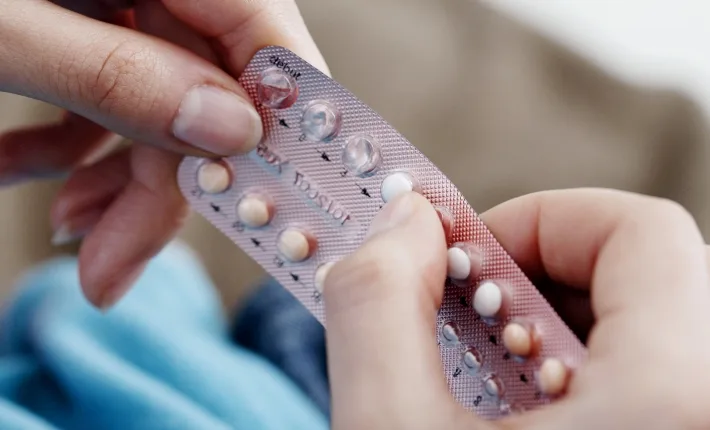Can You Delay Menopause? Everything You Need to Know

Menopause is a natural phase in a woman's life, signaling the end of her reproductive years. While it's a universal experience, the timing and symptoms can vary greatly among women. One common question is ‘Can you delay menopause?’. The answer is nuanced and involves a mix of genetic, lifestyle, and environmental factors. This blog will delve into what menopause is, when it typically sets in, the possibility and methods of delaying it, the health effects of delayed menopause, factors causing early onset, and what to expect when menopause begins.
- What is Menopause?
- When Does Menopause Set In?
- Factors Influencing the Onset of Menopause
- Can You Delay Menopause?
- Ways to Delay Menopause
- Spotting During Menopause: What Does It Mean?
- Does Delayed Menopause Have Any Effect on Your Health?
- Factors That Cause Early Onset of Menopause
- What to Expect When Menopause Kicks In
What is Menopause?
Menopause marks the end of a woman's menstrual cycle, defined as occurring 12 months after her last period. This transition usually happens between the ages of 45 and 55 but can occur earlier or later. Menopause is a natural biological process, characterised by the decline in ovarian function and the end of fertility.
During menopause, the ovaries produce less oestrogen and progesterone, leading to the cessation of ovulation and menstruation. This phase can bring about various symptoms, including hot flashes, night sweats, mood changes, and vaginal dryness. These symptoms result from hormonal fluctuations and can vary in intensity and duration.
When Does Menopause Set In?
The timing of menopause is influenced by numerous factors, including genetics, lifestyle, and overall health. Most women experience menopause between the ages of 45 and 55, with the average age being 51. However, some women may enter menopause earlier or later.

Factors Influencing the Onset of Menopause
Genetics: A significant predictor of when a woman will enter menopause is her genetic makeup. Women often experience menopause around the same age as their mothers or grandmothers.
Lifestyle Choices: Smoking is known to cause earlier menopause, while a healthy lifestyle can delay it. Women who smoke tend to enter menopause up to two years earlier than nonsmokers.
Reproductive History: Women who have had multiple pregnancies tend to experience menopause later than those who haven't. Breastfeeding can also delay the onset of menopause.
Medical Treatments: Chemotherapy and pelvic radiation therapy can induce menopause. Additionally, surgery to remove the ovaries causes immediate menopause.
Chronic Diseases: Certain chronic conditions, such as autoimmune diseases, can lead to earlier menopause.
Spotting During Menopause: What Does It Mean?
Spotting during menopause can be concerning and may indicate various underlying issues. As estrogen levels fluctuate and decrease, the uterine lining can become thin, leading to irregular bleeding. Hormonal changes, endometrial atrophy, polyps, fibroids, and endometrial hyperplasia are common causes of spotting. In rare cases, spotting may be a sign of endometrial or uterine cancer. If you experience spotting, it's essential to consult a healthcare provider to determine the cause and receive appropriate treatment.

Ways to Delay Menopause
Can you postpone menopause? While menopause is inevitable, several strategies may help delay its onset naturally.2 Here are some:
Pregnancy and Breastfeeding: Multiple pregnancies and prolonged breastfeeding can delay menopause. These reproductive activities can reduce the number of ovulations a woman has in her lifetime, thus preserving ovarian function.
Oral Contraceptives: If you’re wondering ‘does taking the pill delay menopause? Then yes, the use of birth control pills may help delay menopause by regulating hormones and reducing the number of ovulatory cycles.
Education: Higher education levels have been associated with a later onset of menopause. This could be linked to better health awareness and access to healthcare resources.
Alcohol Consumption: Limiting alcohol intake can contribute to a later onset of menopause. Excessive alcohol consumption is linked to earlier menopause.
Calorie and Protein-Rich Diet: A nutritious diet, rich in calories and proteins, can support overall health and potentially delay menopause. Foods that support hormonal balance, such as soy, flaxseeds, and nuts, may be beneficial.
Healthy Lifestyle: Regular physical activity, maintaining a healthy weight, and avoiding smoking can contribute to a later onset of menopause.
Spotting During Menopause: What Does It Mean?
Spotting during menopause can be concerning and may indicate various underlying issues. As estrogen levels fluctuate and decrease, the uterine lining can become thin, leading to irregular bleeding. Hormonal changes, endometrial atrophy, polyps, fibroids, and endometrial hyperplasia are common causes of spotting. In rare cases, spotting may be a sign of endometrial or uterine cancer. If you experience spotting, it's essential to consult a healthcare provider to determine the cause and receive appropriate treatment.

Meanwhile you can stay protected from spotting by using Always panty liners. These are dermatologically tested and safe, helping you stay clean and discrete. Try the Multiform Protect panty liners which are designed for high flexibility. Their 1mm thinness and breathable design ensures that you feel dry and great at all times.
Does Delayed Menopause Have Any Effect on Your Health?
Delaying menopause can have both positive and negative health implications.
Positive Effects
Women who experience menopause later may have a longer reproductive window.
Oestrogen helps maintain bone density. Prolonged exposure to estrogen can reduce the risk of osteoporosis and fractures.
Negative Effects
Prolonged exposure to oestrogen is associated with a higher risk of breast and endometrial cancers.
While oestrogen has protective effects on the heart, prolonged exposure may not necessarily confer added benefits and may sometimes pose risks.
Factors That Cause Early Onset of Menopause
Early menopause can be influenced by several factors, including:
- Genetic Predisposition: Having a family history of early menopause.
- Smoking: Tobacco use is linked to earlier menopause.
- Medical Conditions: Autoimmune diseases, thyroid disorders, and chromosomal abnormalities.
- Medical Treatments: Chemotherapy, radiation, and surgeries that affect the ovaries.
- Chronic Stress: High levels of stress can impact hormonal balance and lead to earlier menopause.
What to Expect When Menopause Kicks In
Menopause brings a range of symptoms that can vary in severity. Common symptoms include:
Hot flashes and night sweats which are basically sudden feelings of heat and sweating, often disrupting sleep.
Mood changes such as increased irritability, anxiety, or depression.
Sleep disturbances such as insomnia or disrupted sleep patterns.
Having vaginal dryness caused due to reduced lubrication, causing discomfort during intercourse.
Cognitive changes such as memory lapses and difficulty concentrating.
To prepare for menopause, it’s essential to maintain a healthy lifestyle, seek support from healthcare providers, and consider therapies that alleviate symptoms, such as hormone replacement therapy (HRT) if appropriate.
Understanding the factors that influence menopause and exploring ways to potentially delay it can empower women to take proactive steps in managing their reproductive health. While you cannot completely control when menopause will occur, making informed lifestyle choices can help delay menopause naturally and improve overall well-being. For more details, please consult your healthcare provider.
So, in conclusion, can you delay menopause? While it's not entirely in your control, adopting healthy habits and being mindful of lifestyle choices can make a difference. Can you delay menopause naturally? Yes, to some extent, by focusing on diet, exercise, and avoiding smoking. Can you delay menopause with hormones? Hormone replacement therapy can help manage symptoms but should be discussed with a doctor.
Disclaimer:
Please note the date of the last review or update on all articles. No content on this site, regardless of date, should ever be used as a substitute for direct medical advice, diagnosis or treatment from your doctor or other qualified clinician. Always is committed to ensuring that all of our products meet rigorous safety standards; pads prioritise safety, protection and comfort of its consumers.




